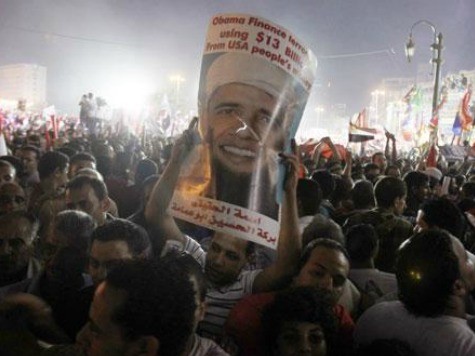
A mass trial against Islamic militants in Egypt has resulted in the death penalty for hundreds involved in the uprisings that toppled President Hosni Mubarak and triggered major instability in the nation. Among those sentenced is Mohammed Badie, the Supreme Guide of the Muslim Brotherhood political party.
According to the BBC, one trial resulted in a judge calling for almost 700 people to be put to death, including Badie, and the commuting of nearly 500 other sentences from a trial under the same judge in March. While the judge’s recommendation is just that until approved by Egypt’s Grand Mufti, described as the last resort in the nation’s Islamic court system, this step, BBC notes, “is considered a formality.” Approval is expected in late June. Only about 50 of those currently being tried for this mass attack are under custody; the rest remain fugitive.
The large group is accused of participating in violent mob activity in the aftermath of the removal of former President Mohamed Morsi.
Badie faces another trial independent of this one for which he has been sentenced to death. He and sixteen leaders of the Muslim Brotherhood separately face trials for “murder and incitement to murder” in a separate incident before Muslim Brotherhood headquarters. Having to attend that trial, Badie did not attend the sentencing today.
Badie has been a leader of the Muslim Brotherhood since 2010, and in the aftermath of Mubarak’s fall became a point man for the political party, to the point that many argued Badie had the true power under Morsi’s tenure, not Morsi himself. He remained an active supporter of Morsi long after Egypt’s first democratically elected leader was deposed. Badie had previously been in prison for nine years for an alleged attempt to overthrow the government as part of a smaller Muslim Brotherhood group.
The Associated Press notes that most of the convictions involve multiple deaths of police officers at riots supporting the Muslim Brotherhood and opposing the remnants of the government of Mubarak. The mass death sentences follow the removal of the Muslim Brotherhood from power last year, when the military ousted former President Mohamed Morsi in July after protests engulfed the country against the leader. Many of the violent interactions on trial this week were considered backlash from Muslim Brotherhood supporters who considered Morsi’s removal undemocratic.
In the days leading up to this verdict, defense attorneys protested that the trial was unfairly accusatory of their clients. The first such trial accusing 529 individuals of participating in a deadly riot was considered by many who support the Muslim Brotherhood an unfair representation of the incident, with many of those indicted allegedly not in the area of the attacks in question. The human rights group Avaaz described the trial as a “hate-filled attack by the authorities on hundreds of their fellow citizens, whose families are living through heartbreak and terror.”
Dozens of others have faced the Egyptian judicial system for similar incidents in the aftermath of Morsi’s ouster for crimes such as rioting, violence, and destruction of property.

COMMENTS
Please let us know if you're having issues with commenting.